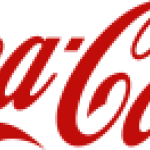- Industry: Beverages
- Number of terms: 1833
- Number of blossaries: 0
- Company Profile:
American non-alcoholic beverage concentrate manufacturer with over 400 brands of soft drinks and syrups, including its flagship product Coca-Cola. It distributes its products in syrup form, which are then carbonated and bottled by franchisee bottlers around the world.
Calcium Phosphate is used as a source of calcium, an essential nutrient for the body. Calcium is a major component of bones and teeth.
Industry:Beverages
Caramel color is made by a process involving the heating of corn or cane sugar and other carbohydrates to achieve the desired color.
Industry:Beverages
Carbonated water, also known as soda water, sparkling water, or seltzer, is water with carbon dioxide bubbles added to provide fun and refreshment.
Industry:Beverages
Carnitine is naturally produced and stored in the body. Carnitine plays a role in the conversion of fatty acids into energy.
Industry:Beverages
Carob bean gum is used as an emulsifier. It assures that oil based flavors are evenly dispersed in a water based drink. Carob bean gum comes from the starchy part of the seed of the carob bean tree.
Industry:Beverages
Carrageenan is a gelatin like substance derived from seaweed. It is used as a thickener.
Industry:Beverages
Cellulose gum is used as a suspending agent and thickening agent. It is derived from naturally occurring cellulose found in fruits and vegetables.
Industry:Beverages
Chromium Polynicotinate is a source of chromium, an essential nutrient which is known to help the body get energy from food.
Industry:Beverages
Citric acid is the most widely used organic acid in the food industry and has been used for more than 100 years. It is a compound that is found in animals and plants. Citric acid can be produced from different plant sources, including corn. It is also commonly found in citrus fruits such as lemon, orange, and grapefruit, which is why it is named “citric acid”. Citric acid is used in beverages to provide tartness.
Industry:Beverages
